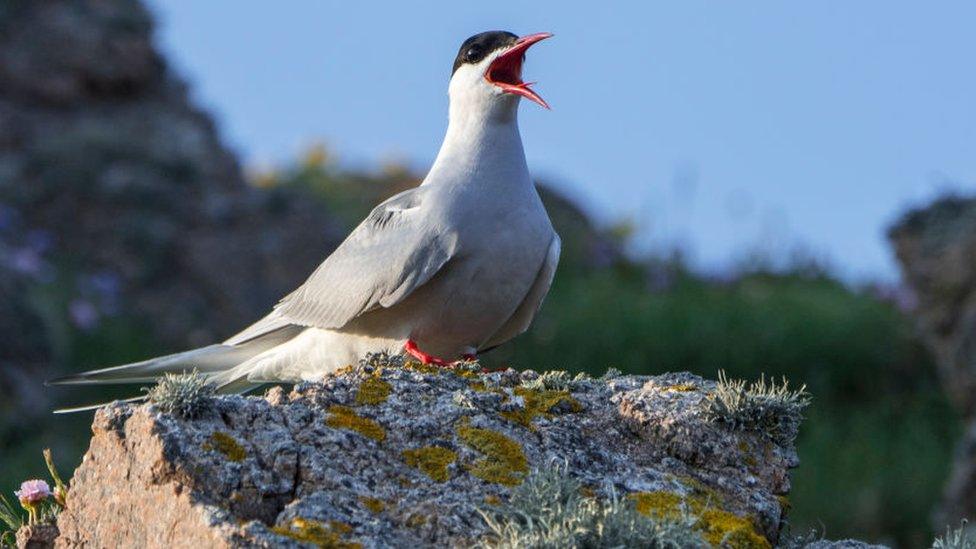Overgrown Farne Island plants spark Arctic tern nesting fears
- Published
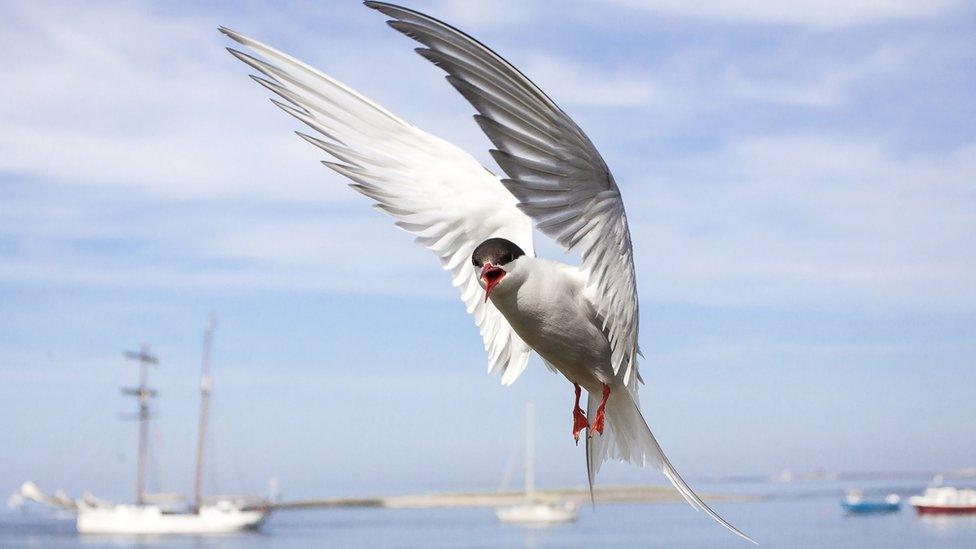
Arctic terns visit the Farne Island to nest
Bird lovers fear overgrown vegetation is deterring Arctic terns from returning to a popular nesting island.
Inner Farne, off the Northumberland coast, normally has National Trust rangers on it to keep grass short for the ground-nesting migrants.
But Covid restrictions left it unmanned allowing it to become overgrown, with a large drop in the number of terns.
The National Trust said the birds had moved to other sites and other factors could be at play.
Concerned birdwatchers shared pictures on social media showing overgrown vegetation and a lack of birds.
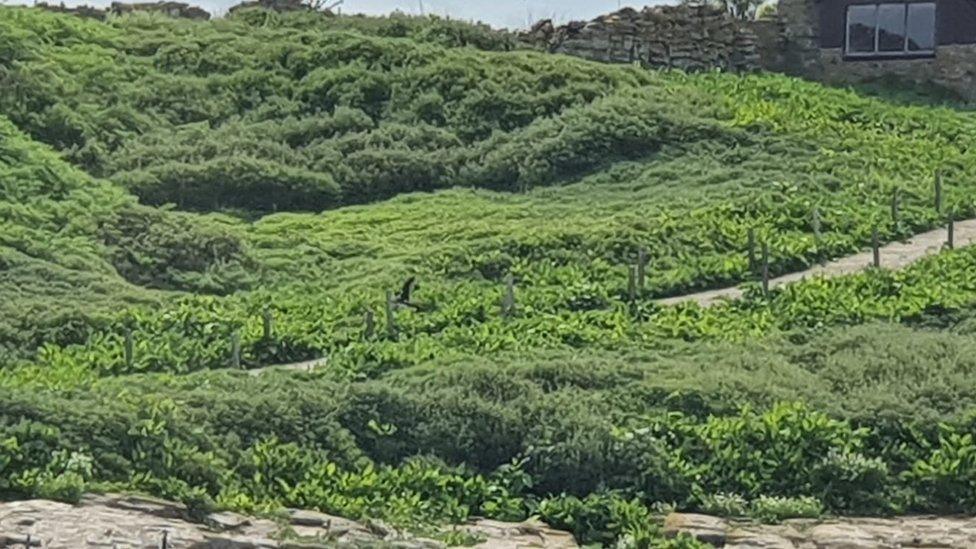
Twitter users said the air would normally be full of Arctic terns and vegetation was also looking overgrown
David Steel, a former head ranger the island, said seeing the pictures was an "utter shock".
He said the Farne Islands are a "significant seabird colony" with "almost 4%" of the Arctic terns that nest in Britain nesting on the island cluster.
"Big vegetation, no birds, it was a shock and a surprise to see," he said.
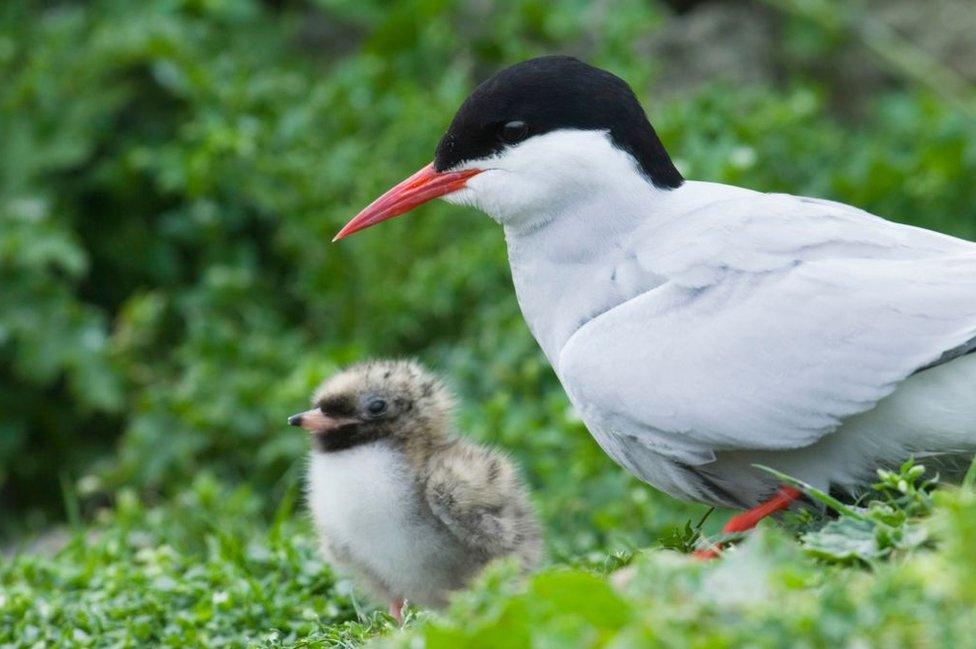
Arctic terns nest in short grass on Inner Farne
"Not having rangers living out there is a big factor, as a result the habitat management has been neglected.
"The Arctic tern colony has been managed for 50 years and that management has come to a complete standstill."
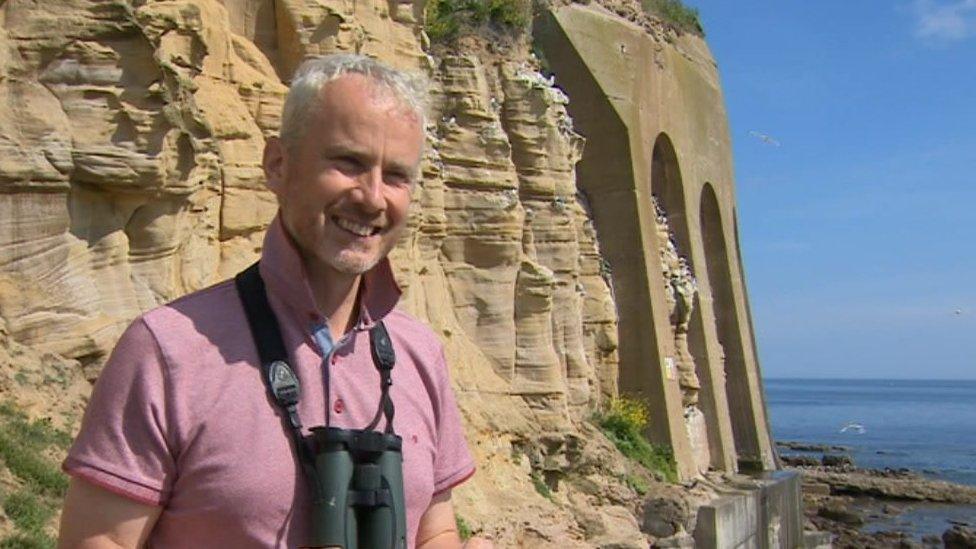
David Steel was head ranger on the Farne Islands for 14 years
Mr Steel said the birds spent winter in the "pack ice of the Antarctic" and arrived in the UK in "late-April, early-May" looking for short grass to nest in.
"If that vegetation is allowed to grow it swamps them out and they can't nest," he said.
He said it was "not all bad news" as the birds had been nesting on other islands in the area and they would return to Inner Farne "if we get the management right".
Having rangers and visitors on the island also deters predators such as gulls from targeting the Arctic terns, Mr Steel said.
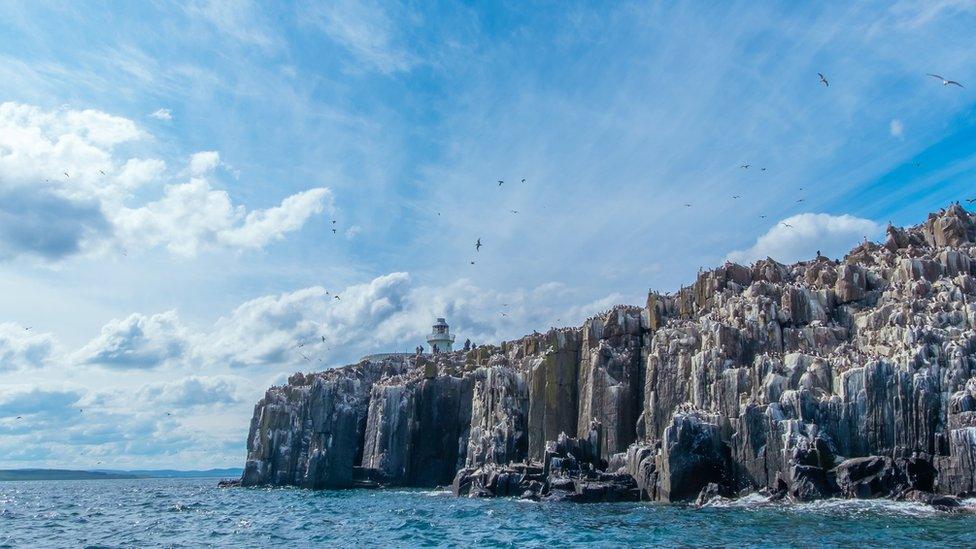
The Farne Islands are home to a "significant seabird colony", Mr Steel said
A National Trust spokesman said the number of birds on Inner Farne had "sadly reduced this year" but they have moved to other Northumberland sites,
The spokesman said: "Terns don't always favour one location and can move in large groups between sites.
"Recent disease and different foraging areas may also play a part, but we expect the Arctic terns to return to Inner Farne in the future."
The spokesman said the last year had "been challenging", adding: "We'll boost our vegetation management further as soon as possible."

Follow BBC North East & Cumbria on Twitter, external, Facebook, external and Instagram, external. Send your story ideas to northeastandcumbria@bbc.co.uk, external.
Related topics
- Published8 September 2020
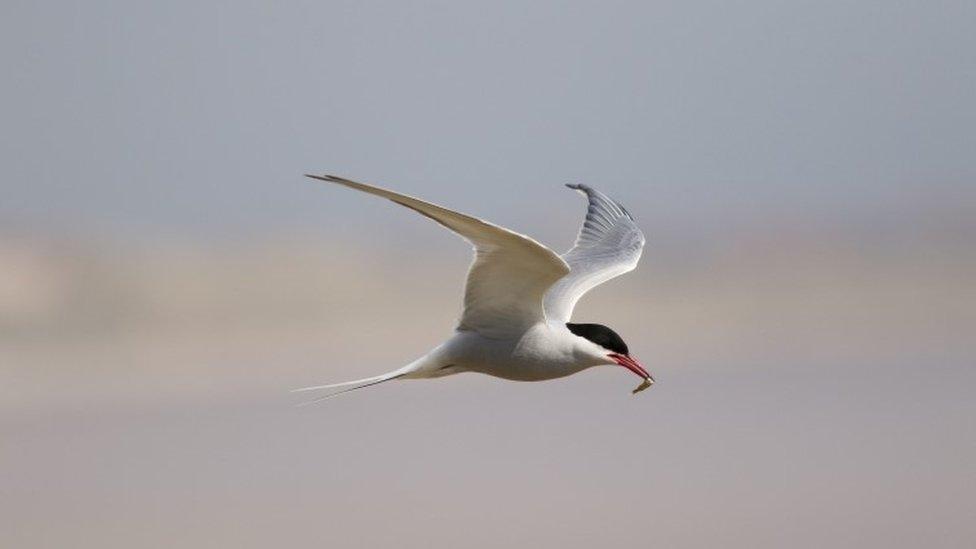
- Published2 September 2020
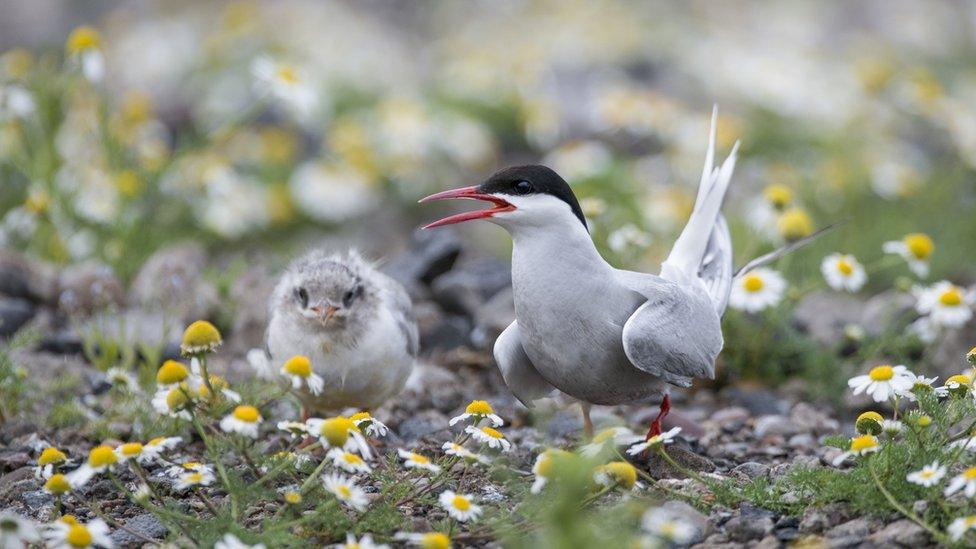
- Published8 July 2019
